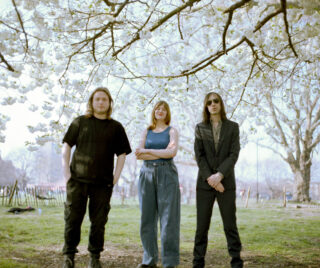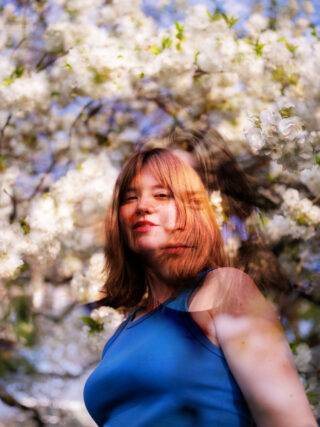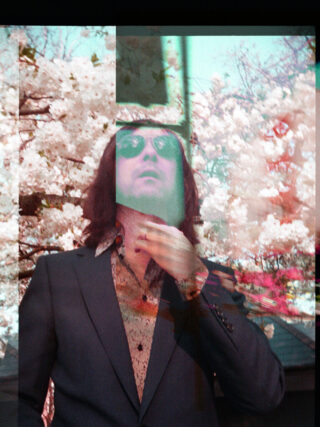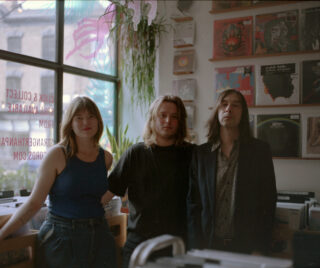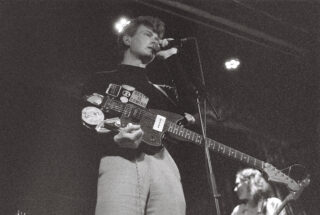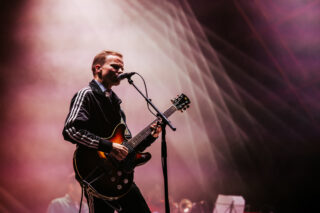BG: Would you agree that your generation’s tastes are more sophisticated? Artists these days are making things that would’ve been considered totally avant-garde thirty years ago. I was listening to Young Thug recently, some of the arrangements are fucking wild. But my teenage kids seem to think it’s completely normal.
EH: I think the process of making music has become more accessible with the advent of different software, especially within underground music.
BG: It’s good because it’s taken things out of the hands of ‘musicians’ and democratised what it is to be an artist.
JN: It’s made things more intuitive. This idea of making something and hearing it fundamentally for how it makes you feel as opposed to some preconceived idea that follows a certain way of doing things.
OR: This intuitive way of thinking is filtering through independent labels too. Seeing bands like Squid signing to Warp, and PVA sign to Ninja Tune; more and more, labels that typically cater to electronic music are embracing this intersection between indie rock and dance culture.
BG: Certainly in the ’80s, it felt like most labels had a distinct sound. There were all these outposts of independence, but all were tributaries from the great river of rock music. I don’t know what the entity was for dance music at the time. The indies just weren’t clued up on it.
JB: I guess because they were all just starting out back then?
BG: Yeah. That started through the ’90s, when techno and acid house labels began to materialise. I don’t think anything existed before that. If you wanted to buy dance music, it would’ve been through American imports. Whereas now, those shoestring operations from the ’90s have grown to become your generation’s culture.
OR: Perhaps technology needed to catch up a little before electronic labels could be viewed on the same footing as indie rock?
BG: To give a quick history lesson: in 1990, we built a makeshift studio in an industrial unit towards the bottom of that road.
[Gillespie now beckoning down the street]
BG: It’s where we recorded the demos for Screamadelica. Our guitarist, Andrew Innes, managed to get hold of an Akai S1000. It was like a little computer with its own screen and keyboard which allowed us to start sampling and making loops. Other than that, it was just pianos and guitars. That was our equipment. Have you got your own studio?

EH: No, but I think in the future, it would be nice to have our own space. But it’s a bit of a pipedream. London rent is mad.
BG: That’s the big problem nowadays. I can’t remember how much the rent was down the road. We essentially just used it as a place to write and demo our music. But it felt amazing to spend five days a week there and just work things out.
EH: I think that’s partly why so many people have turned to computers for making music. Actually getting studio space to record a live band has become inaccessible. It’s easier to begin producing music from your bedroom. That’s why everything now feels more naturally swayed towards electronic music. You don’t need to be a tech head to make music, you just learn to develop ideas.
BG: All you need is imagination. It’s what really makes someone an artist. I’ve met loads of people that can work the machines, but can’t make music.
JB: We used to play on stage with just a laptop and a MIDI keyboard. I’ve now got something called Hydrasynth. I can move it in a way that I can’t with a guitar. I like to push it to make things feel alive and unstable.
EH: The way that synth works is like trying to ride in a rodeo show. It can be difficult to stay on top. There have definitely been moments during shows where I’m looking at Josh and he’s really fighting to tame it.
BG: It sounds like a true beast. Have you got a name for it?
JB: No, but I should really think about giving it one.
OR: Where do you think dance culture is today in comparison to the heyday of acid house?
BG: You’re asking the wrong guy. I can’t say I go out that much anymore!
JB: Obviously we weren’t around and going to clubs in the ’90s. But there are definitely some cool scenes happening within smaller communities and subcultures in London.
EH: I think the LGBTQ scene is a big part of it. A lot of really good queer focused nights have begun to come out the woodwork. Sometimes going to watch a DJ in some overpriced London club can really miss the mark. But queer nights seem to consistently feature some of the best electronc dance music around.
JB: I think any club night that can bring people together, whether that be underground or in popular culture, to celebrate who they are is really special.
BG: Whatever happens, there has to be a scene. Whether it’s a style of dress or certain type of music, that’s what creates a community with people there for the right reasons.
JB: I guess these are the situations that end up fostering good music because people are there to egg each other on.
BG: I think if people are there because they love what the DJ brings out each night, it’s that unified interest that will eventually materialise into a scene. Whether you’re there to hear rock, hip hop, jungle, industrial, psychedelic, soul, or country music, without even speaking to the person next to you, you know everybody’s there for some common purpose. That’s how it felt when I was going to the acid house clubs. Everybody was there to dance and have a good time. It’s about a shared love of sound, rhythm and music. But all of it happens in the moment. Whatever you guys are digging now, in five years’ time, it will be something different. Scenes are not built to last.
JB: Those idyllic, utopian moments might come and go but it’s important to remember what was great about them. It gives people perspective on whatever might be waiting around the corner.
BG: We saw all those changes in acid house. We were there at the beginning in ’89, but by ’92, aspects of it had already moved on. I remember Andrew Weatherall adapting his set to a much harder style of techno that was almost inhuman. There were no feelings in it. It went with the drugs. When things began moving from ecstasy to cocaine. The rhythms became faster, and the music felt more insular and closed off. I could appreciate it, but I couldn’t enjoy the experience in the same way as before. When I think about all the different subcultures that spawned from the early ’90s, it’s as though they’re the veins in my body, but my heart is acid house. There was a lot of great music, but it felt like that great utopia moment had passed, for me at least for sure.




